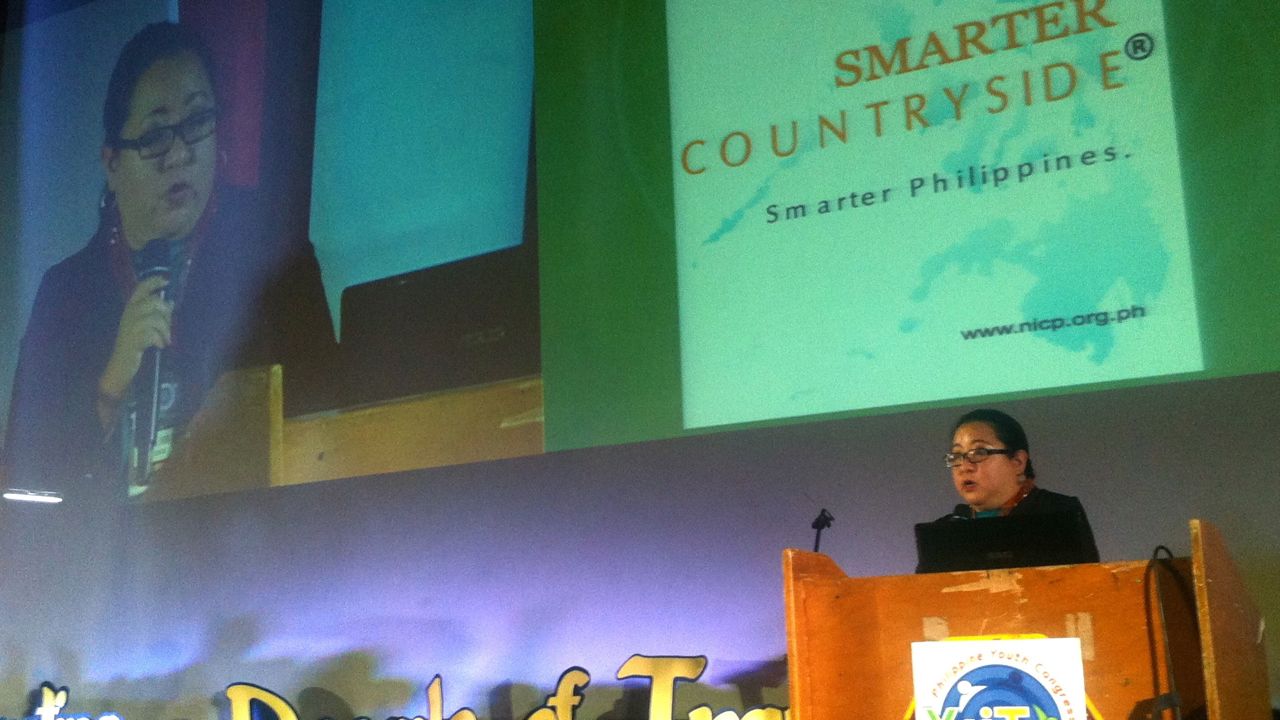SUMMARY
This is AI generated summarization, which may have errors. For context, always refer to the full article.

MANILA, Philippines – Information and communication technology (ICT) will stop the brain drain and spark development in the countryside, according to National ICT Council of the Philippines Chairman Jocelle Batapa-Sigue.
“Wala nang kinikilalang barriers, basta may connectivity pwede ka nang magtrabaho,” according to Batapa-Sigue, speaking at the 10th Philippine Youth Congress in Information Technology (Y4iT) at the University of the Philippines Diliman held on September 10-15, 2012. (There are no more barriers, you can work even abroad for as long as there is connectivity.) Organized by the University of the Philippines Information Technology Development Center (UPITDC), the week-long conference carried the theme, “IT is Power: Celebrating a Decade of Transforming Lives.”
During her talk on September 10 at the UP Film Institute, the ICT advocate lamented that young graduates from the provinces prefer to leave their hometowns to seek greener pastures in the cities or outside the country.
“Manila is already very crowded. Either we go to Manila to work or go abroad,” Batapa-Sigue said. “The country can’t be smarter if it doesn’t have a smarter countryside,” she noted.
Citing official figures, Batapa-Sigue said that of the nearly 500,000 graduates every year, about 400,000 come from outside the National Capital Region (NCR).
Reverse brain drain
The flight of Filipino talent can be discouraged if the Information Technology-Business Process Outsourcing (IT-BPO) sector in the country expands to the countryside, according to Batapa-Sigue.
The IT-BPO sector includes call center services, translation services, animation, design and software development, and others.
In 2011, the sector generated about US$11 billion in revenues and employed 638,000 Filipinos, the Business Processing Association of the Philippines (BPAP) reported.
The Philippines is currently considered the call center capital of the world, employing the bulk of workers in the IT-BPO sector.
But according to Batapa-Sigue, the sector will expand to the following fast growing areas:
- ITpreneurship – financing, medical, business and processes
- Knowledge processing outsourcing – research and development in IT, engineering, and business management
- Creative process outsourcing – animation, game development
Batapa-Sigue believes that prospects in these sectors are bright because Filipinos “have a lot of artistry and creativity. Pinoys are known in the world as talented and skillful.”
But Batapa-Sigue stressed that schools need to provide a sufficient and skilled pool of talents to meet the demands of the rapidly growing IT-BPO sector.
“Our universities make us excellent students but not excellent workers and professionals,” Batapa-Sigue said, reiterating what new graduates usually tell her about the mismatch between the labor demand of the industry and the quality of skills among graduates.
Batapa-Sigue said that this could be addressed through academe-government-industry dialogues.
E-governance
“One of the important factors (of development) is to improve the climate of LGU (governance) and the ease of doing business,” Batapa-Sigue also explained.
According to Batapa-Sigue, the ICT can be “a tool to promote efficiency, transparency and accounatbility in governance.”
ICT covers not only the BPO sector but other important sectors such as governance and social services, Batapa-Sigue said.
Batapa-Sigue noted that many of the LGU websites are static and do not encourage engagement.
“ICT should not just be a fad. Leaders should appreciate how it improves the living conditions of the community,” Batapa-Sigue said. – Rappler.com
(Rappler is a media partner of the 10th Y4iT held on Sept 10-15, 2012 at the University of the Philippines Diliman. The conference is considered the country’s biggest gathering of IT experts and professionals, students and educators. Since it began in 2003, the conference has already drawn a total of 105,000 participants .)
Y4iT 2012: The Philippine Youth Congress on Information Technology from UP ITDC on Vimeo.
Add a comment
How does this make you feel?
There are no comments yet. Add your comment to start the conversation.